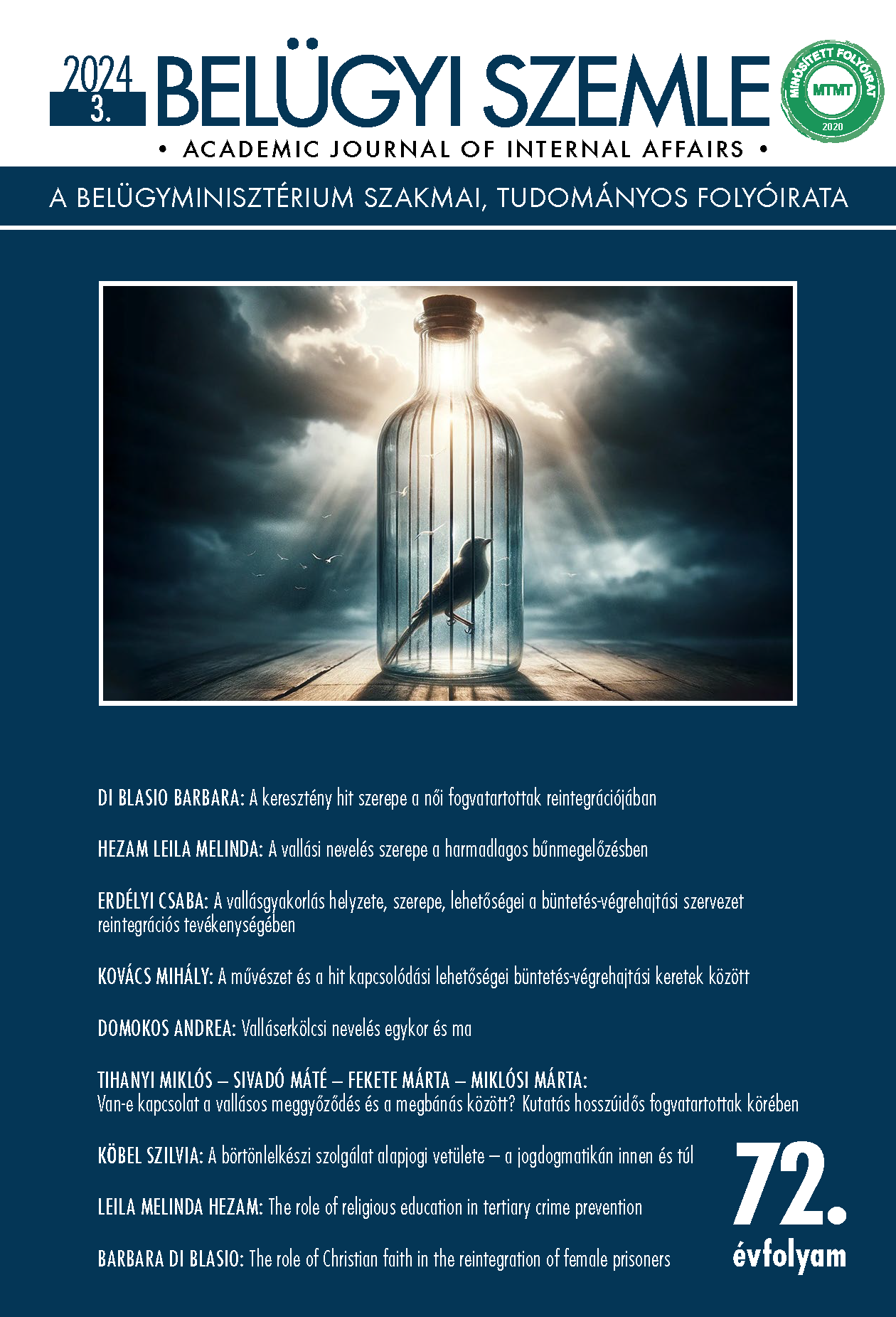Absztrakt
Aim: This study delves into the correlation between religious faith and the process of reintegration among women in incarceration. In Hungary, this subject is relatively understudied; however, international insights underscore the prominent role of religious convictions in shaping an individual’s predisposition towards criminality and their influence on prosocial conduct. Yet, the extent and contentious nature of its role in reintegration persist due to a lack of emphasis by societal institutions associated with detainees, disregarding the intricate sociological prospects embedded within religion and faith. These prospects, meticulously scrutinised by sociologists, encompass the maintenance and fortification of social order, the regulation of human activities, and more. An additional challenge arises post-release, where organisations and religious institutions involved in the spiritual rehabilitation of detainees lose contact with these individuals, impeding subsequent investigative efforts.
Methodology: The data for our pilot study were gathered among residents of Kalocsa Prison in 2024. Employing the Shortened Aspiration Index, augmented by interviews, our research methodology sought to enrich descriptive statistical analyses through the nuanced exploration of interview content. Sample selection followed a randomised and voluntary basis (N: 46 individuals). Importantly, the outcomes derived from our study are not intended for generalisation but rather apply specifically to our sampled cohort.
Findings: Our discernments indicate that, for the female detainees under scrutiny, faith and religious practices wield a positive influence on delineating life objectives. They also play a pivotal role in sustaining mental equilibrium, with noteworthy psychoeducational ramifications. During catechesis, knowledge enrichment extends beyond cultural dimensions to encompass moral teachings, fostering an understanding of the ethical values and frameworks essential for normative living.
Value: Determining the criteria for the success of post-release reintegration proves elusive, given the nuanced and idiosyncratic nature of success for everyone. Factors influencing an individual’s psychological dynamics and behavioural patterns intricately interweave within a complex socioeconomic system. Thus, it is reasonable to assert that the precepts of Christian teachings, faith, and the spiritual and organisational scaffolding of religious practices can form integral components of a supportive framework. Acknowledging the reinforcing role of Christian faith, particularly among women, aligns with the 2022 census data from the Hungarian Central Statistical Office (KSH), which underscores a prevailing proclivity towards religiosity among women in contemporary Hungary.

This work is licensed under a Creative Commons Attribution-NonCommercial-NoDerivatives 4.0 International License.
Copyright (c) 2024 Belügyi Szemle

